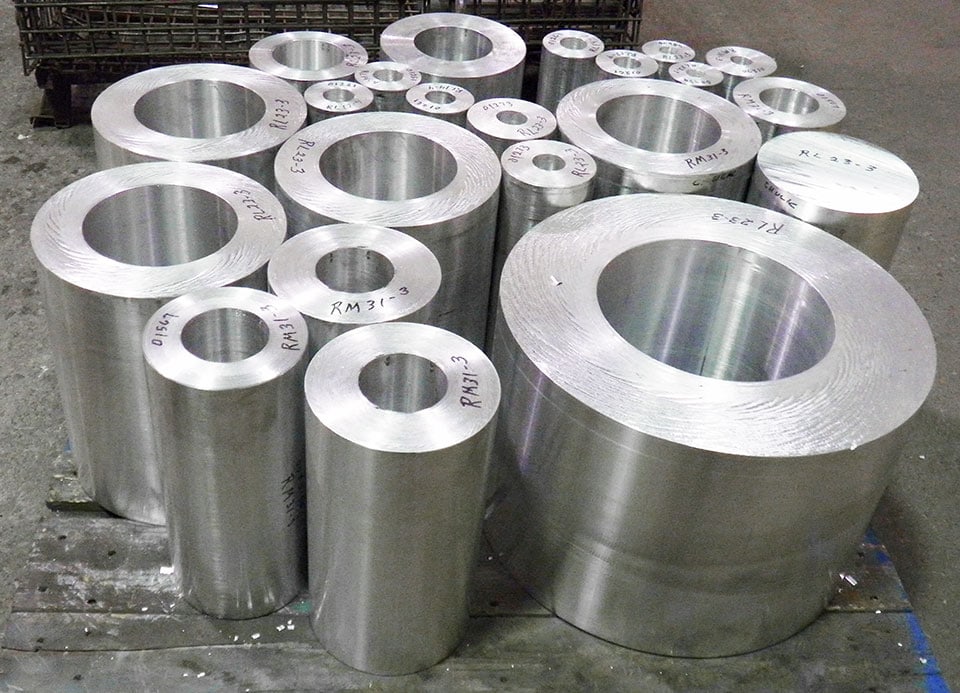The Aluminum Foundry process: from raw materials to final design
The Essential Uses Aluminum Foundry in Numerous Industries and Their Effect
Aluminum factories work as a crucial source within many industries. Their light-weight and sturdy materials substantially improve efficiency in vehicle, aerospace, building, and electronics industries. As each market leverages light weight aluminum's unique homes, they likewise add to sustainability efforts. This diverse effect motivates a much deeper exploration of exactly how Aluminum formed these industries. What particular technologies and advantages emerge from its usage?
Automotive Sector Applications
The automobile industry progressively depends on Aluminum Foundry applications to improve car efficiency and effectiveness. Aluminum's lightweight nature adds substantially to fuel economic situation, making it a favored choice for manufacturers aiming to reduce exhausts and improve total vehicle dynamics. Parts such as engine blocks, transmission housings, and wheels are commonly generated via Aluminum spreading procedures, enabling for intricate layouts that fulfill strenuous safety and performance requirements.

Aerospace Innovations

Furthermore, making use of aerospace-grade Aluminum alloys boosts resistance to deterioration and tiredness, vital for the demanding environments aircraft face. Developments in additive manufacturing also enable fast prototyping and personalization of parts, decreasing lead times and costs.
Construction and Infrastructure
While the building and construction and framework sectors remain to advance, Aluminum shops are significantly recognized for their payments to contemporary building techniques. Light weight aluminum's light-weight nature and high toughness make it an optimal product for various structural applications. Foundries provide components such as beam of lights, frameworks, and facades that boost the sturdiness and longevity of buildings and framework tasks.
Moreover, aluminum's rust resistance plays a vital duty in extending the life-span of frameworks exposed to extreme ecological problems. The power performance of Aluminum products likewise aligns with lasting building campaigns, contributing to lower power consumption in building. In addition, cutting-edge spreading techniques have actually expanded the layout possibilities, permitting designers and architects to develop aesthetically pleasing yet functional frameworks.
Electronics Production
Aluminum foundries play a considerable duty in the electronics producing sector, where the demand for light-weight and thermally conductive materials is critical. Aluminum Foundry. Parts such as warm sinks, coverings, and brackets are commonly created using Aluminum due to its exceptional thermal residential properties and capability to dissipate heat effectively. This is essential in electronic devices, where overheating can result in failing and lowered efficiency
The flexibility of Aluminum permits complicated layouts and exact machining, which are crucial in modern electronic devices. On top of that, aluminum's non-magnetic residential or commercial properties make it ideal for applications in delicate electronic equipment, lessening disturbance. Furthermore, aluminum's resistance to corrosion boosts the toughness of digital elements, ensuring longevity and dependability.
Sustainability and Reusing Efforts
Given the enhancing emphasis on ecological duty, the Aluminum Foundry industry has actually made considerable strides in sustainability and recycling initiatives. Aluminum is inherently recyclable, enabling shops to reuse and reclaim product with marginal power expenditure compared to main production. This closed-loop recycling procedure not only minimizes waste yet also lowers greenhouse gas exhausts, contributing to a much more sustainable production model.
Additionally, lots of foundries are adopting energy-efficient innovations, including renewable power sources, to power their procedures (Wisconsin Aluminum Foundry). This shift not only lowers click this site dependence on nonrenewable fuel sources yet likewise improves general functional efficiency
Industry cooperations are further promoting lasting techniques, such as sharing ideal methods and creating innovative recycling techniques. By prioritizing these efforts, the Aluminum Foundry market is placing itself as a leader in lasting manufacturing, straightening with global targets for sustainability while satisfying the demands of different sectors.

Often Asked Questions
What Are the Primary Benefits of Making Use Of Aluminum in Foundry Processes?
The main benefits of making use of Aluminum in Foundry procedures include its light-weight nature, superb rust resistance, high thermal check out this site and electric conductivity, and versatility, enabling for detailed styles and reliable recycling, inevitably enhancing total production effectiveness and reducing prices. - Aluminum Foundry
How Does Aluminum Foundry Impact Product Lifecycle Management?
Aluminum Foundry considerably improves product lifecycle administration by enabling reliable material usage, reducing waste, and helping with recycling. Its lightweight residential properties enhance transport efficiency, while toughness expands item lifespan, eventually adding to sustainability and cost-effectiveness in production.
Are There Details Obstacles in Aluminum Foundry Manufacturing?
Certain obstacles in Aluminum Foundry production consist of handling temperature control, guaranteeing worldly quality, lessening waste, and adapting to fluctuating market demands. These factors can impact efficiency, expense, and overall competition within the market.
What Security Procedures Are Important in Aluminum Foundry Operations?
Necessary safety and security measures in Aluminum Foundry procedures consist of individual protective tools, correct air flow, regular tools upkeep, hazard communication, and emergency reaction training. Executing these methods assurances worker safety and lessens risks associated with high-temperature metal processing.
How Does the Cost of Aluminum Compare to Various Other Steels in Foundry Usage?
The price of Aluminum is typically reduced than that of metals like copper and titanium, making it a cost-efficient selection for numerous Foundry applications. This cost adds to its extensive use throughout different markets.
Aluminum factories offer as a necessary resource within various industries. The auto industry increasingly counts on Aluminum Foundry applications to enhance automobile efficiency and efficiency. The product's recyclability also straightens with the sector's press towards sustainability, as recycled Aluminum calls for substantially much less power to process compared to key light weight aluminum. Aluminum shops play Wisconsin Aluminum Foundry a considerable role in the electronic devices manufacturing industry, where the need for lightweight and thermally conductive materials is critical. Provided the raising emphasis on ecological responsibility, the Aluminum Foundry market has made considerable strides in sustainability and recycling initiatives.